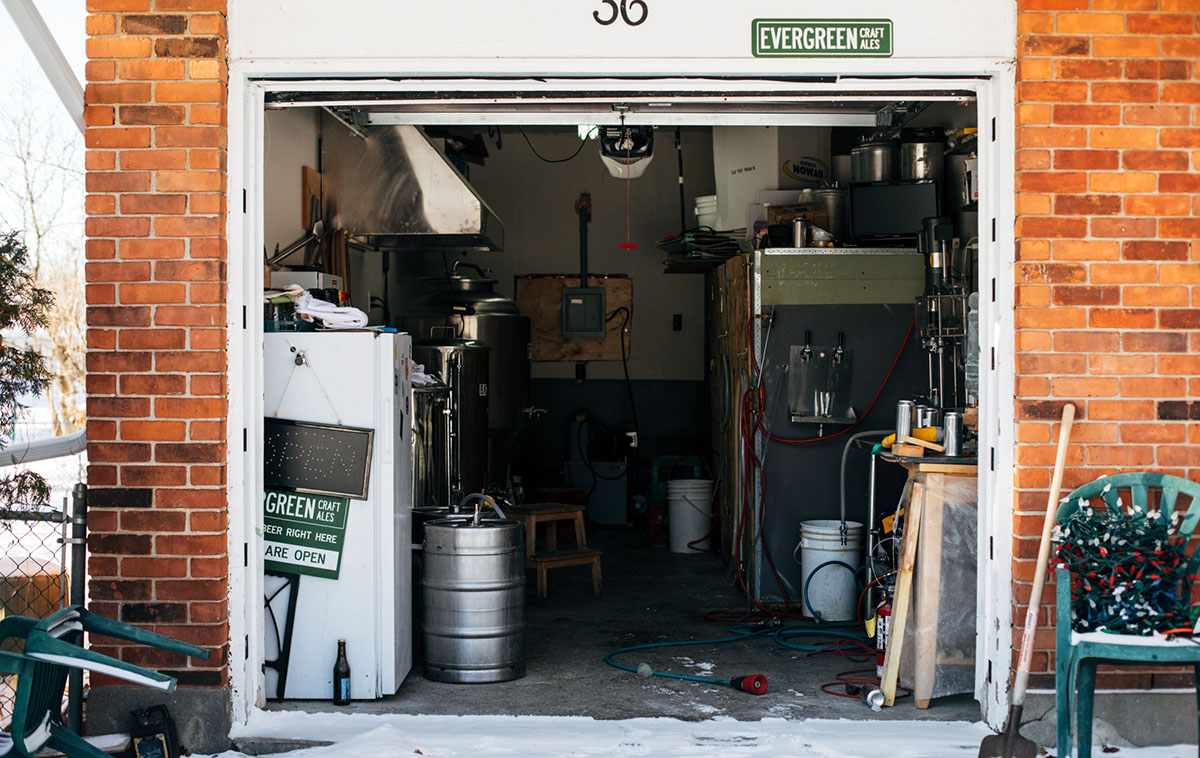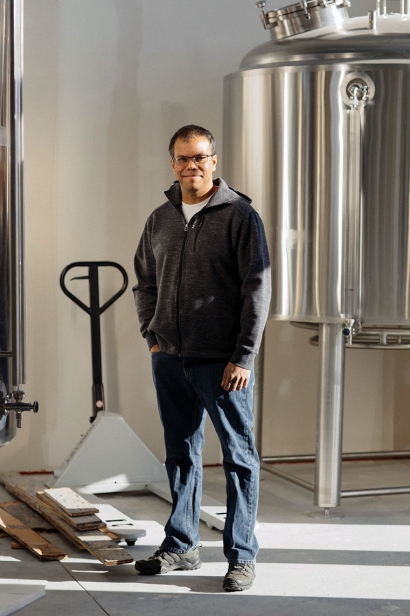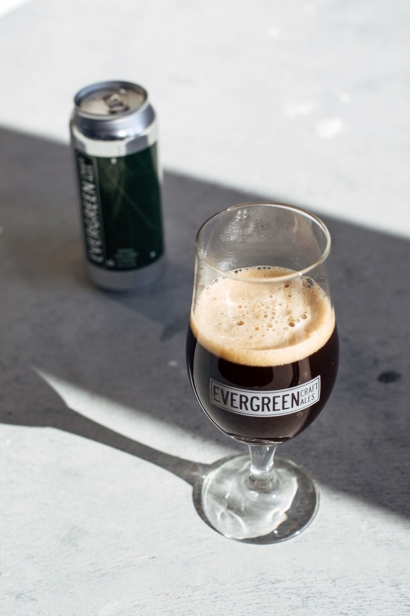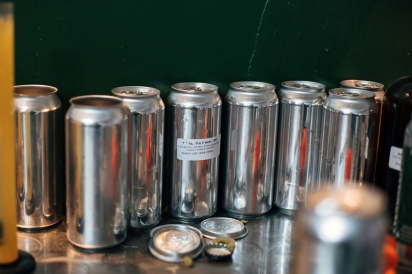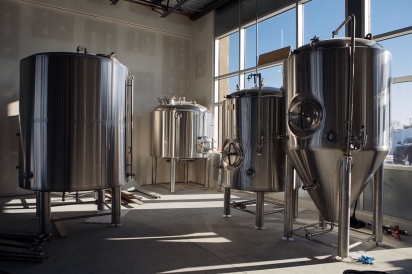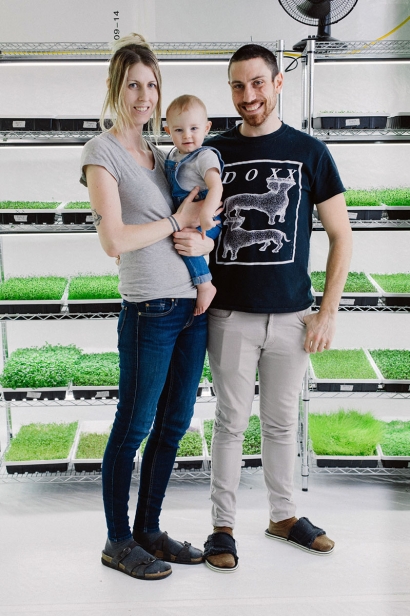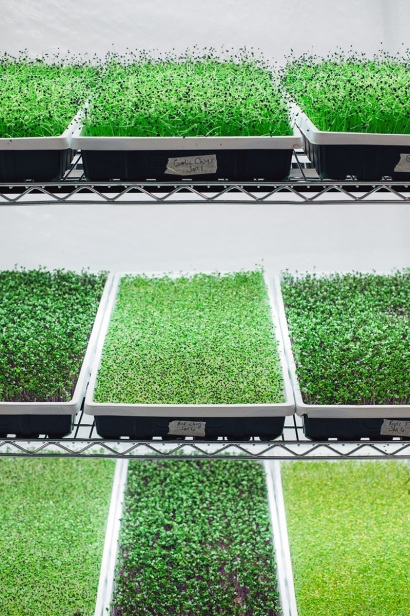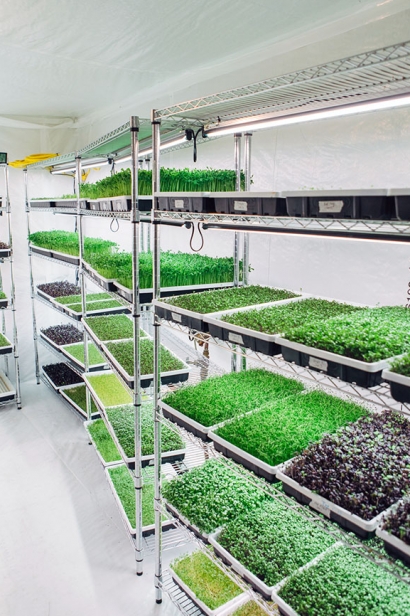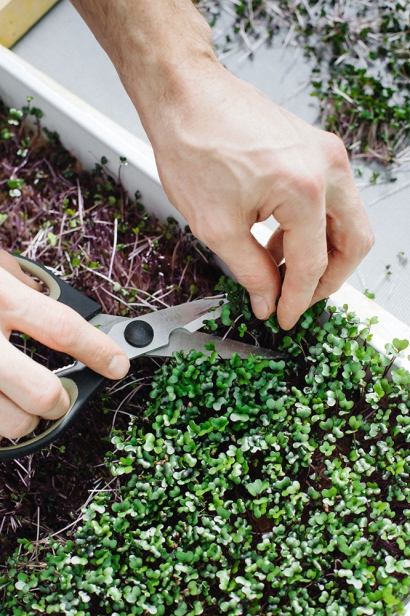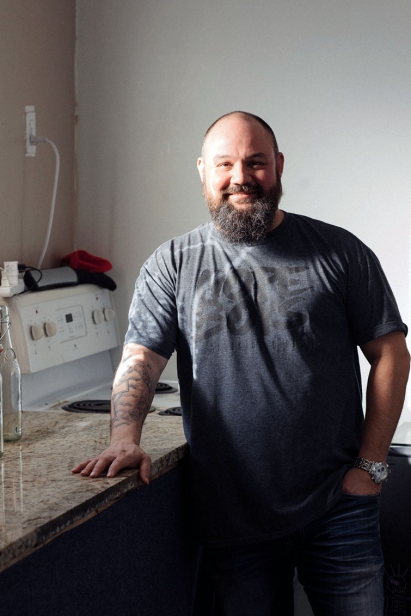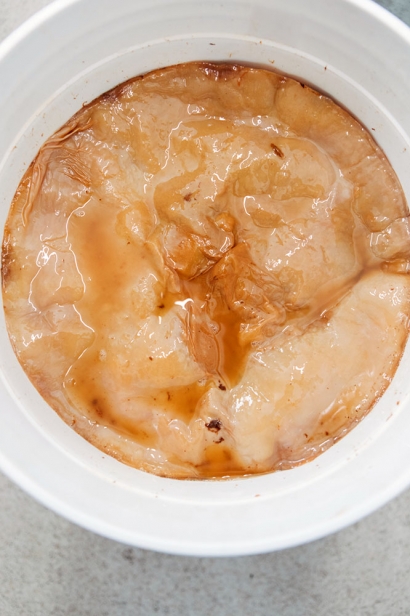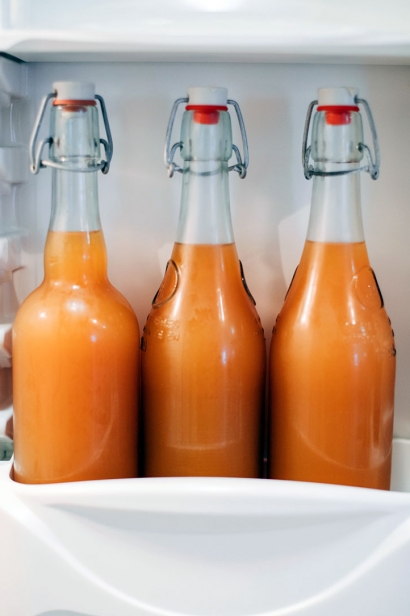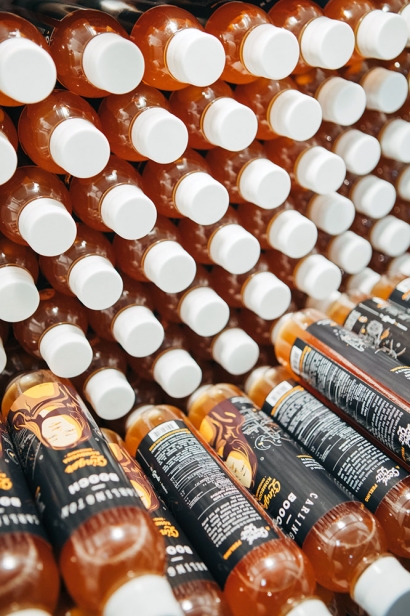Nosey Parkers
It’s a strange truth that although modern city dwellers live packed together in close proximity, we really don’t know our neighbours at all. Just what do the people who share your postal code do in the privacy of their own homes? What are their family dynamics like? What are they watching on TV? And pray tell, what on Earth is going on in their garage?
If you lived next door to one of these local small-business owners, you could well wonder. Whether it's the brewing of a new batch of kombucha, the cultivation of microgreens or a brewery quickly outgrowing the confines of a residential address, business is booming. These garage- and home-based ventures are redefining “home” across the capital.
A Micro-brewery hidden in suburbia
You wouldn’t know it now, but when Chris Samuel, a software developer by day and the owner of the garage-based brewery Evergreen Craft Ales, first tried his hand at brewing at home, the results were undrinkable. “It was horrific, it was absolutely horrific.”
But he continued tinkering away, using the equipment he purchased from a big box store, before he was ousted from the kitchen by his wife, who was sick of the mess and smell of his experimentations. Ending up in the backyard, Samuel bonded with neighbours who were wondering what he was up to. He then joined the Members of Barleyment (MOB), a quirkily named home-brewing organization in the nation’s capital.
An interest became a passion and Samuel read everything he could find on brewing, using the internet to supplement his knowledge and testing batch after batch at home. As the months grew colder, he took the operation into the garage, bought more equipment and started to realize he was on to something.
“I am not an artist by any means, but brewing is more of an art than a science. When I cook, I never follow a recipe and when I brew, I am very much the same,” he says.
A loophole in local bylaws meant, although most food-based businesses such as bakeries and catering operations are subject to inspections and are difficult to base at home, breweries are exempt as long as nobody complains. Samuel canvassed his neighbours. No one complained and he was soon supplying not only neighbours, but restaurants and bars. This created a new set of problems, as he found he couldn’t produce enough to satisfy his commercial and residential clients. He says it was an easy choice. The business had started in his neighbourhood, so his his regular garage patrons would be the focus of his production.
“When we first opened, I met neighbours I never knew existed who lived four doors down from me. I actually had a customer last Saturday who lives on the street over from us and he was Google Mapping something and saw the brewery. He had no idea we were there.”
The microbrewery, which only opens for a few hours on Saturdays, is named after the Bells Corner street the garage sits on. The logo uses the same font, shape and colours as the street sign to tie the entire brand to its humble beginnings.
The beer has become incredibly popular over the last two and a half years, but Samuel remains modest about his product.
“I've never hit a point where I am totally happy,” he says. This perfectionism leads him to keep trying new recipes. At one point, he felt he had stumbled on the perfect brew, but that recipe was lost in a computer crash.
He relies on family and friends as a tasting panel, but admits that criticism can crush the ego. “It's hard to watch someone drinking your beer in front of you. Not everyone is going to like every brew you make,” he says.
Samuels must be doing something right as the brewery is set to expand with a move to a brand new 15-barrel brewhouse near the Canadian Tire Centre in Kanata, featuring a 1,000-squarefoot taproom. Samuel has taken on partners to make this dream a reality, but it's the garage that made it all possible. Being able to point to the success of the home-based brewery was a tangible way to attract investment and collaboration.
Samuel has named each of the more than 40 different ales, lagers, IPAs, stouts and bitters produced by Evergreen Craft Ales, always after they have been brewed and usually at the last minute. “I don't name them until I am done. I taste them first.” Some of the names are adventitious. On one occasion, as he was canning a new beer, a neighbour who lived around the corner popped over. The new beer’s name? “Around the Corner.”
With the expansion happening, Samuel admits the naming process may have to be streamlined, but he won’t have a corporate solution. “I don't want to sit in a boardroom and ruminate over brand decks. I would rather have a quirky name than a name that's gone through a focus group for three weeks — that's not the craft-beer way,” he says.
That won't be the only thing to change now that Evergreen Craft Ales is moving out of the garage and going mainstream. In two and a half years, Samuel has only had to dump five bad batches, with negligible impact, but the consequences are greater now as the production flow increases. “Thirty barrels of beer that cost $10,000 to make? You wanna make sure it’s good,” he says.
Samuel plans to keep the original garage licensed as a production facility to allow him to continue to play with new brews. “I’ll keep the system and two small fermenters in place for one-offs — as an experimental side, but not having to worry about blowing through a big batch,” he says.
The community ties that made Evergreen Craft Ales popular in the first place will be strengthened at the new location. Samuel plans to encourage his future staff to interact with customers and passionately share their love of craft brews. As for other local breweries, Samuel says there is a friendly relationship at play.
“We are all really trying to change the drinking behaviour of the general public to consider coming away from a cheap light lager to try different styles. We are all in it together because it only takes one bad craft beer to sour that macro beer drinker for the rest of their lives.”
A self-confessed “beer geek at heart,” Samuel wants to immerse his customers in an olfactory journey akin to visiting a bakery or coffee roaster.
“Your brain is triggered by the smell — to say this is something I want. That sensory experience has to be there when you walk into a brewery,” he says.
The challenge — as Evergreen Craft Ales expands — will be to maintain that community feel that first drew customers to a garage door in a quiet neighbourhood of Ottawa.
Evergreen Craft Ales
36 Evergreen Dr., Ottawa, Ont. 767 Silver Seven Rd., Kanata, (Opening Spring 2019)
evergreencraftales.com | @evergreencraftales
The home-based magic of microgreens
Sometimes our future paths are shaped more by the interruptions than by the plans themselves. Sarah Gott and Josh Stewart- Boyd realized this truth after a resolution for greater health and happiness led them to move west to work on an organic farm.
“We decided we wanted a change from our jobs, we wanted a different adventure, so we drove across the country to B.C. to work on an organic vegetable farm,” Gott says.
Gott and Stewart-Boyd landed at Spotted Moose Farm in the small community of Celista in Shuswap Lake, B.C. Within the first month there, they discovered that Gott was expecting their first baby and it was time to return home to Ottawa. As they packed up to move and prepare for their future family, they left with a parting gift. Chris Pisesky, the farm's owner and their mentor, gave them five grow lights, hoping they would grow microgreens at home. A low-maintenance crop, microgreens require no more than water and space to flourish.
Once settled back home, they started to grow for their own table, but soon found that friends and family were eager to share in the nutritive bounty. Stewart-Boyd, who has a background in marketing, knew that promoting healthy food fit with his environmental philosophies.
“After selling so many products that were meaningless to me, I can feel good about this because it's healthy. There is no guilt attached to marketing something of this nature.”
The dream of working from home grew out of a desire to spend more time with family and save on the cost of daycare. They went into the venture eyeing it as a potential business rather than a mere hobby.
The grow space in their house expanded so quickly that, within three months, they had to move to a larger home to have enough space to accomodate work and family. “That's when we knew it was definitely a business here in Ottawa,” Gott says.
In their larger home, a duplex, the basement serves as the grow space. Here they produce speckled peas, arugula, broccoli and daikon radish, sugar dwarf peas, wasabi mustard, daikon radish, purple kohlrabi, red radish and yellow pea microgreens, with new varieties introduced as they acquire new seeds.
Not to be mistaken for sprouts that are grown in water, microgreens are shoots from vegetables. They’re very nutritious, with some studies claiming they have up to 40 times the nutritive density of an adult plant. But public awareness of these nutrient-powerhouses is lacking, an omission Stewart-Boyd hopes to remedy.
Microgreens also offer a condensed flavour of the parent plants. Arugula, for example, is quite spicy, so the microgreen is spicy too. The same can be said of microgreens from radish and wasabi. “They have intense flavours that can really increase different flavour bases,” Stewart-Boyd points out. “There's a large learning curve for mainstream cooks.”
Gott uses microgreens in a variety of ways, in smoothies, on pizzas and in soups and salads. She has also developed flavoured hummus and a pesto-inspired condiment using vivid green speckled pea microgreens and nutritional yeast as a cheese alternative. Gott adds sunflower seeds for texture and to boost the nutrient count even further. Gott and Stewart-Boyd have also been testing a dehydration process to turn microgreens into seasonings.
Wizard Greens uses organic, GMO-free and grown-in-Canada seeds from Mumm’s Sprouting Seeds of Saskatchewan. Once they arrive in the basement of the family home, they undergo a simple growing process that sees them ready for harvest in as few as six days. Some varieties take longer to grow, but most will complete a growing cycle within 12 to 22 days.
Instead of the traditional soil method, Wizard Greens grows its microgreens on hemp mats to avoid the mess of bringing soil in and out of the house. Besides the seeds and hemp mats, they need only water, a combination that’s “as natural as you can get,” Gott says.
In the near future, Gott and Stewart-Boyd hope to develop automated systems for watering, seeding and tray-cleaning so the business can easily be franchised. Work on these systems is being done in the electrical engineering department of Algonquin College, an institution from which they both graduated.
The proposed franchising of the company will help Gott and Stewart-Boyd stay true to their original goal of working less to enjoy more family time. Stewart-Boyd has been particularly concerned with not overextending himself or the young business too quickly.
“I could turn around and get five more clients this afternoon if I really wanted to, but I am trying to keep my hours per week down, so I can focus on other things to improve the business over the long term instead of the short term," he says. "I think a lot of people get caught up in just making the money instead of trying to grow.”
If everything goes according to plan, there will soon be a number of Wizard Greens franchisees using their basements and garages to bring high-quality nutrients to your plate.
Wizard Greens
wizardgreens.ca | 613-854-9646 | @wizard.greens
Friendship and Fermentation Over the Booch Pit
On private property in Carlington, a neighbourhood in Ottawa’s west end, a double-wide garage, which once held a doggy spa, has been transformed into an unusual space for recovering addicts. The booch pit, as it’s known, is where Carlington Booch is brewed — a line of pop-inspired kombucha that also helps people get back on their feet after recovering from alcohol and drug addiction.
Co-owner Jon Ruby understands the barriers faced by those graduating from recovery centres all too well. Back in 2005, he was navigating his own journey towards sobriety. “I ended up at a homeless shelter in a psychotic state and went through a rehab centre down at the Ottawa mission,” he says.
Ruby became interested in kombucha when he tried a sample his friend Johanne Beatty, now co-founder of the social enterprise, was brewing on her countertop. Ruby was immediately taken with the new flavour.
What followed was a 10-month period of learning all about the fermentation process and mixing up his own flavoured syrups in the basement. Those experimentations led to the development of Carlington Booch and its current lineup of flavours — naked, ginger and root beer. He is proud of the root beer brew — made of organic ingredients — as well as the ginger booch — blended with cardamom, lavender and lime for a refreshing and aromatic taste.
Ruby has found that much of his marketing energy has gone to educating the public about the beverage, particularly at the farmers' market. “The masses don’t know what kombucha is,” he says.
The drink promotes gut health with friendly bacteria and B vitamins. It’s a fermented drink made with tea and a culture called “symbiotic culture of bacteria and yeasts,” commonly referred to as SCOBY. Naturally carbonated, it has a slightly sour taste without additional flavouring. And Carlington Booch adds some caffeine (typically less than what’s found in a can of pop) for a little lift.
Ruby jokes that it also provides a social ritual similar to drinking alcohol and a similar taste profile due to the fermentation process, but with none of the undesired side effects. Though its flavour is so good, Ruby admits to being “personally addicted to it myself.”
The rubbery SCOBY floats on top of the tea mixture as it ferments and looks like something from an alien planet. “It’s a living, breathing symbiotic culture of bacterial yeast," Ruby says, "and it's magical because it turns sugared tea into something incredible.”
Volunteers helping to brew kombucha are at different stages in their recovery, but all have graduated from a rehabilitation or treatment centre. “We are always open and honest about our own journeys and sometimes a recovery meeting breaks out over the booch pit.”
Here they learn how to craft small batches of kombucha using traditional methods to maintain the integrity of the flavour. During peak times, they can sell upwards of 200 bottles of booch, which all feature drawn portraits of the people who support Carlington Booch on the labels. Ruby says the faces are intended to remind the public that addicts are just regular folk.
“We're all normal looking people, but all of our lives have been affected by addiction,” he says.
A portion of the profits fund micro-grant projects to improve the lives of local people struggling with addiction. The social enterprise philosophy of helping addicts to “booch the gap” back into society includes volunteer and employment opportunities through which Ruby immerses people in the brewing experience. The work is not only hands on, but tongues on. “I try to get all the volunteers to bite the SCOBY,” Ruby says. “You can eat it. It tastes rubbery and it’s a tart and tangy flavour — not bad at all.”
While making the transition back into regular life, those in recovery also learn a variety of business skills, such as marketing and sales.
The fermentation process leaves the kombucha with a very small amount of alcohol. Some alcoholics in recovery find this hard to tolerate, but Ruby himself hasn’t found this to be a problem.
“I know some people in early recovery just don’t like the taste," he says. "We make sure it has very minimal alcohol. In fact, fresh pressed juice or English muffin would have more alcohol in it.”
Ruby has plans for the future of Carlington Booch, including an innovation centre with a culinary focus, employing people from the addiction and recovery world. “We want to have an impact on our culture and community and the more bottles we can sell the more impact we can have,” he says.
And that intended impact is good — changing lives once almost destroyed by the bottle, one bottle of kombucha at a time.
Carlington Booch
carlingtonbooch.com | @carlingtonbooch


